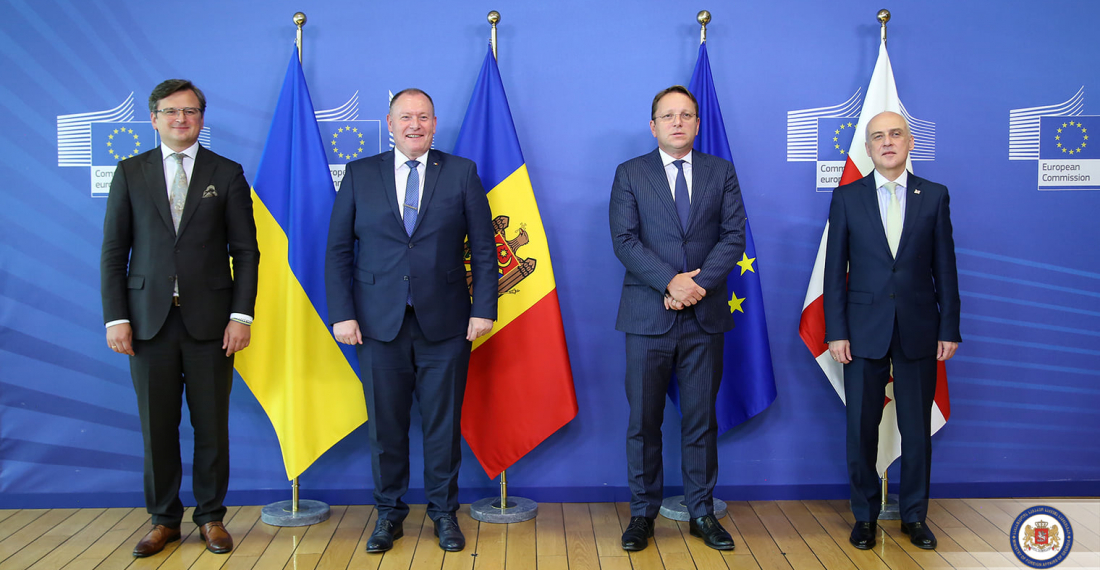In the course of discussing the EU's relations with Russia and Turkey on Thursday (24 June), EU leaders meeting in the format of the European Council in Brussels have sent a clear signal that the Union is ready to intensify its relations with the countries of the Eastern Partnership and with those of Central Asia.
The statement sends a clear message to address concerns that in the last year the EU has been elbowed out from regions like the Caucasus.
Meanwhile, next door to the European Council meeting at the European External Action Service, High Representative for Foreign and Security Policy, Josep Borrell, was meeting with the foreign ministers of Georgia, Moldova and Ukraine, who were in Brussels asking for even more EU commitment to their three countries, and seeking a membership perspective. Borrell emphasised the importance the EU attaches to the Eastern Partnership
"The European Union attaches its utmost importance to its relations with the Eastern partners and we consider the region a priority for our support and commitment" - Josep Borrell.
Borrell's comments may not have satisfied the emissaries of Georgia, Moldova and Ukraine, who are trying to persuade the EU to open membership negotiations with them. Borrell made it clear that the priority for the EU was to ensure that the agreements already in place with the three countries are implemented successfully.
Borrell was sympathetic to the call of the three countries, reminding them of the experience of his country, Spain, when it sought EU membership:
"Let me first state very clearly that the European Union should be proud that our partners want to move closer to us, want to move closer to the European Union, and even to join it. Too often, within the European Union, we take for granted what we have managed to create: an area of prosperity, security and opportunity for all.
"Our Union is not perfect, but that membership is seen as a strategic objective for many countries is a great compliment.
"I am Spanish, and coming from Spain I can tell you that when we were out of the European Union we were really willing to become part of it. Because we understood that it was a way forward to a better and more secure future.
"So I have to welcome the closer coordination between Georgia, the Republic of Moldova and Ukraine, as well as their request for enhanced cooperation with the European Union."
But that was as far as it went on this issue. There is no appetite in Brussels for further enlargement beyond the Balkans for the moment. But the appearance of the three Eastern Partnership countries together sends a message to the EU that the door has to be left ajar.
In the meantime in a further sign of increased EU commitment, the foreign ministers of Austria, Romania and Lithuania on Friday started a tour of the South Caucasus countries as special envoys of the EU.






